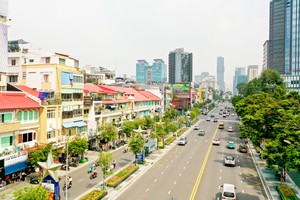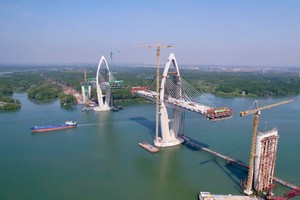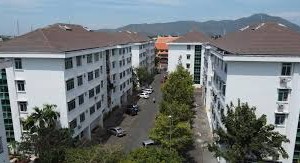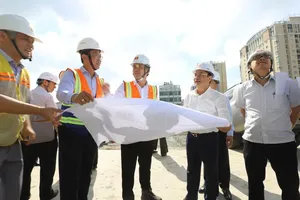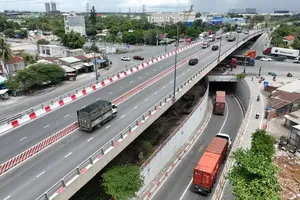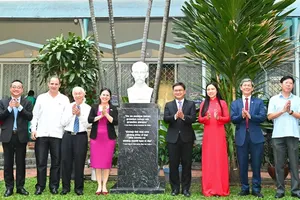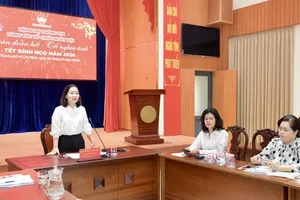However, the administration system is also expected face numerous challenges in effectively serving residents and businesses.
The reporter of Sai Gon Giai Phong Newspaper had an interview with Director of the Ho Chi Minh City Digital Transformation Center, Vo Thi Trung Chinh, on the city's preparations for operating the newly integrated urban area on a digital foundation.

According to the director, the Ho Chi Minh City Digital Transformation Center has identified the deployment of shared systems and software as a core mission to increase efficiency in serving people and businesses in the new Ho Chi Minh City.
Therefore, the center has coordinated with the Departments of Science and Technology of HCMC, Binh Duong and Ba Ria – Vung Tau to develop a comprehensive plan for rolling out shared systems. The goal is to ensure interoperability and synchronized operations among all three localities, she said.
At present, the Ho Chi Minh City Digital Transformation Center is prioritizing the integration and deployment of software, such as receiving and handling administrative procedures, document management, video conferencing, and feedback and petition management systems. Data connectivity and sharing among government bodies are implemented through the city’s Local Government Service Platform (LGSP). This enables faster processing, reduces paperwork, and enhances transparency and convenience in the delivery of public services.
Notably, the Ho Chi Minh City Digital Transformation Center is actively working in close coordination with the National Data Center to integrate these digital platforms with key national population databases, taxation, social insurance, and business registration. This effort is aimed at streamlining administrative processes and reducing service times, she added.
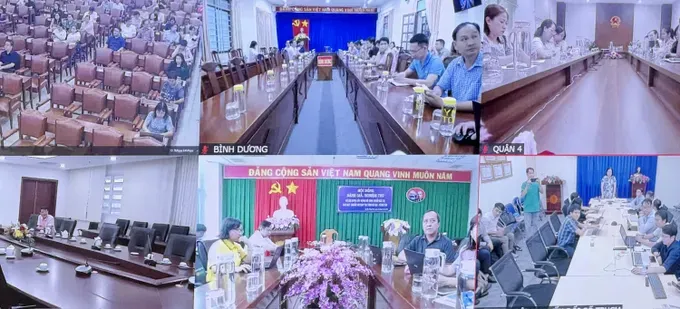
The merger of three provincial-level administrative units to form the new Ho Chi Minh City, alongside the development of a two-tier local government model, requests a smooth operation of the administrative procedure system to better serve residents and businesses.
Therefore, the center has carried out a series of initiatives aimed at ensuring seamless and effective system operations across the newly formed city. These efforts include the standardization and integration of administrative processes, the issuance of identification codes, and the preparation of user accounts for 168 commune-level administrative units, alongside securing the necessary technical infrastructure.
Specifically, the center has conducted a comprehensive review of all administrative procedures and standardized the procedures for processing administrative dossiers to ensure streamlined coordination between the two levels of local government. The center has coordinated with relevant departments and agencies to configure electronic workflows and integrate them into the city's shared administrative system.
In addition, the center has issued identification codes, created user accounts, and assigned access rights to the 168 newly formed commune-level administrative units across Ho Chi Minh City, ensuring they are fully operational immediately after the merger.
The center has also inspected, upgraded, and expanded the city's IT infrastructure to meet the demands of the enlarged administrative boundaries, ensuring an uninterrupted system. It has also organized in-person and online training sessions for public officials and civil servants to ensure their capacity to receive and process administrative procedures during the transition.
These efforts are aimed at maintaining public service delivery and minimizing any potential impact on residents and businesses throughout the restructuring period.
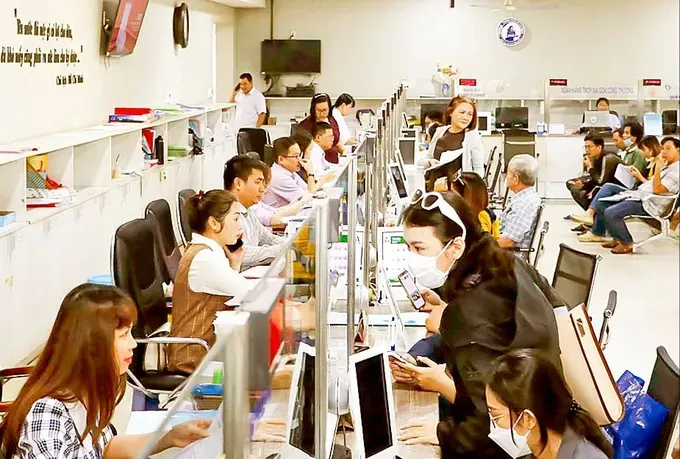
In reality, the application of science and technology among the three localities currently shows notable disparities.
According to the Director of the Ho Chi Minh City Digital Transformation Center, the center identifies human resources as a critical factor in the digital transformation process. As such, a structured training and capacity-building roadmap has been developed for civil servants, tailored to the specific needs of each locality following the administrative merger.
Training programs focus on the use of information systems for administrative procedures, data management, and basic and advanced digital skills. The flexible training programs, including in-person sessions, online courses, and on-site practical guidance, are employed to maximize accessibility and ensure hands-on proficiency.
Alongside efforts to enhance human capital, the center has partnered with local authorities to conduct a comprehensive review and targeted investment in information technology infrastructure.
Upgrades have been implemented across key areas, including network bandwidth, hardware, data storage systems, and cybersecurity protocols, to ensure stability and security and meet the requirements of unified operation of digital platforms throughout the new city.
Ms. Vo Thi Trung Chinh stated that the merger created a new city with a significantly larger population and geographic footprint, necessitating comprehensive and flexible public service management and supply methods with people-centered development. The center would develop a multi-platform, multi-channel digital public service ecosystem, including the city’s official public service portal, a digital citizen app, a support hotline, and personalized QR codes designed to ensure that public services are accessible to all, anytime and anywhere.
In addition, the city plans to accelerate the decentralization of power to the grassroots in handling administrative procedures. Modern technologies, such as artificial intelligence (AI) and big data analytics, will be leveraged to personalize user experiences, automatically suggest relevant services, streamline processing times, and enhance transparency.
These innovations aim to build a digital government that is citizen-friendly and highly efficient, delivering online public services that are convenient, transparent, and tailored to the needs of every individual and organization across the new Ho Chi Minh City.
